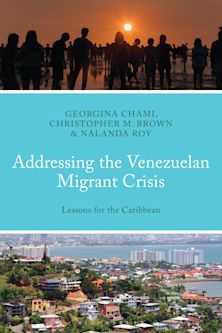Postcolonial Nations, Islands, and Tourism
Reading Real and Imagined Spaces
Postcolonial Nations, Islands, and Tourism
Reading Real and Imagined Spaces
This product is usually dispatched within 3 days
- Delivery and returns info
-
Free CA delivery on orders $40 or over
Description
Postcolonial Nations, Islands, and Tourism examines how real and literary islands have helped to shape the idea of the nation in a postcolonial world. Through an analysis of a variety of texts ranging from literature to prison correspondence to tourist questionnaires it exposes the ways in which nationalism relies on fictions of insularity and intactness, which the island and island tourism appear to provide. The island space seems to offer the ideal replica of the nation, and tourist practices promise the liberation of leisure, the gaze, and mobility. However, the very reliance on the constantly shifting and eroding island form exposes an anxiety about boundaries and limits on the part of the postcolonial nation. In appropriating island tourism, the new nation tends to recapitulate the failures and crises of the colonial nation before it.
Starting with the first literary tourist, Robinson Crusoe, Postcolonial Nations, Islands, and Tourism goes on to show how authors such as JM Coetzee, Romesh Gunesekera, and Julian Barnes have explored the outlines and implications of islandness. It argues that each text expresses a profound discomfort with national form by undoing the form of the island through a variety of narrative strategies and rhetorical manoeuvres. By throwing the category of the island into crisis, these texts let uncertainties about the postcolonial nation and its violent practices emerge as doubt in the narratives themselves. Finally, in its selection of texts that shuttle between South Africa, Great Britain, and Sri Lanka, equalizing the former colonial metropole and its outposts, it offers an alternative disciplinary mapping of current postcolonial writing.
Table of Contents
Product details
| Published | Jan 16 2019 |
|---|---|
| Format | Paperback |
| Edition | 1st |
| Extent | 226 |
| ISBN | 9781783486465 |
| Imprint | Rowman & Littlefield Publishers |
| Illustrations | 5 b/w illustrations;4 b/w photos; |
| Dimensions | 229 x 152 mm |
| Publisher | Bloomsbury Publishing |
Reviews

ONLINE RESOURCES
Bloomsbury Collections
This book is available on Bloomsbury Collections where your library has access.



































